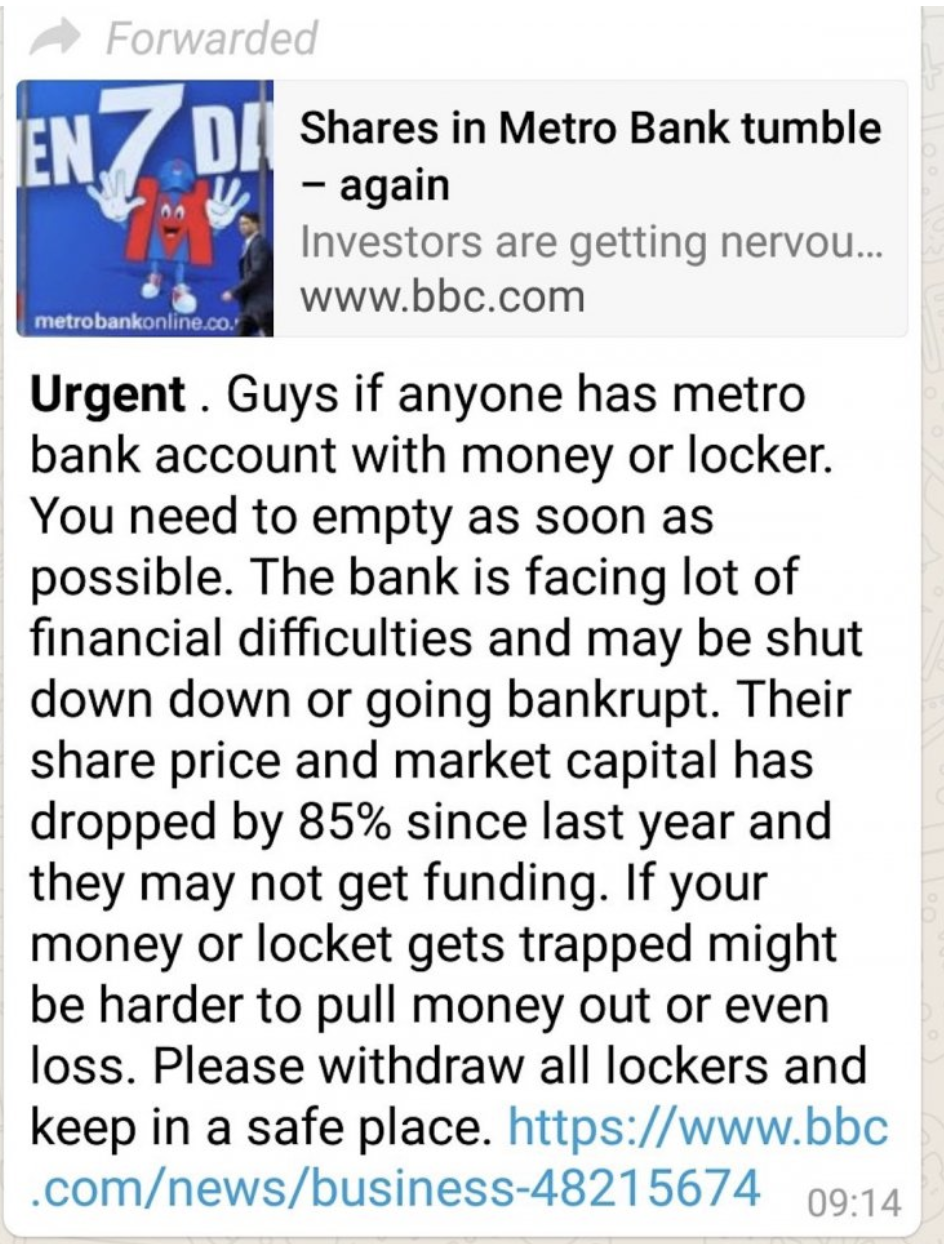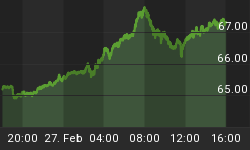For most people, the mention of “fake news” conjures up images of social media posts with rather fantastic, implausible stories; but rarely does the corporate world come to mind. But as some companies have found out the hard way, fake news on social media sites can be incredibly damaging--even setting off massive share sell-offs. UK-based Metro Bank Plc (LON:MTRO) is the latest company to learn this after it shares tanked 10 percent on Monday following fake rumors on WhatsApp that the beleaguered bank was about to go under.
The bank’s staff at the Harrow branch were baffled when hordes of customers queued to withdraw money from their accounts and empty valuables from safe-deposit boxes in a Great Depression style-panic run fearing the bank was on the brink of collapse. The hapless customers had fallen victim to a false rumor on WhatsApp that the bank was about to shut down, obviously unaware of the fact that UK bank accounts are guaranteed by the Bank of England.
The latest social media kerfuffle is hardly an isolated one and highlights just how difficult it is to counter fake news circulating in a private, encrypted environment such as WhatsApp’s.

(Click to enlarge)
Source: Business Insider
Adding fuel to the fire

(Click to enlarge)
The fake news could not have come at a worse time for Metro Bank and only helped add fuel to an already raging inferno.
Metro shares have tanked a staggering 86 percent since peaking in March 2018 after the bank revealed it had underestimated the amount of shock-absorbing capital it required to support its business loans. The bank has to raise about $350 million to cover the shortfall by selling additional shares, something that rarely goes down well with existing shareholders. The bank also revealed during its latest earnings call that some big customers have been taking money out of the bank.
Social media indicators
The latest fake news-episode in the corporate world demonstrates shows just how quickly lies can spread on secure platforms such as WhatsApp, with real-world consequences. Related: Welcome To The World’s Biggest Free Trade Area
Twitter can be just as deadly, and no one knows how to wield this social media tool to devastating effect better than our dear president. In December 2016, shares of defense contractor Lockheed Martin (NYSE:LMT) dropped $4 billion after President Trump tweeted that the company’s F-35 program was too costly and that he would do something about it after ascending to the Oval House.
Nevertheless, social media can be a very useful tool for traders as evidenced by the rapidly growing field of sentiment analysis that analyzes data from social media feeds such as Twitter and Facebook.
In 2010, professor Johan Bollen of Indiana University discovered that analyzing Twitter feeds using mood-tracking tools such as Opinion-Finder and Google-Profile of Modd States (GPOMS) can be used to accurately predict up and down closing values by the Dow Jones an impressive 87.6 percent of the time.
In 2014, financial data services provider, IHS Markit, found that social media sentiments, both positive and negative, can provide useful trading cues.
In 2013, social media data analytics firm, Dataminr, was able to get a leak on a failed BlackBerry, Inc.(NYSE:BB) M&A deal and alert its clients a whole 180 seconds before Wall Street got whiff of the news. In the same vein, SocialMarketAnalytics, analyzed 400K Twitter accounts to gain business intelligence and alert its clients days before activist investor Carl Icahn said Apple, Inc.(NASDAQ:AAPL) shares were grossly undervalued sending them soaring.
By Alex Kimani for Safehaven.com
More Top Reads From Safehaven.com:
















